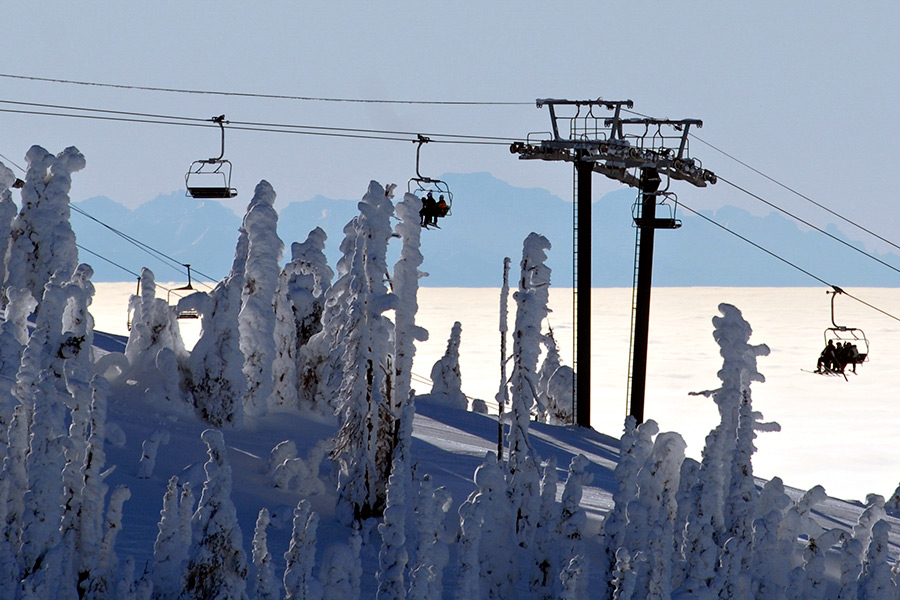Hospitality Industry Could Suffer from Foreign Visa Suspension
J-1 foreign visa suspension may lead to unfilled positions in the tourism and hospitality industries
By Maggie Dresser
After hosting exchange students from all over the world for the last 15 years, Whitefish resident Sue Moll will have a much quieter house this ski season.
Every year, Moll hosts foreign J-1 visa workers who travel to the U.S. to work at Whitefish Mountain Resort (WMR) as part of a cultural exchange, but the resort won’t be able to hire those employees for the 2020-2021 season.
After the Trump administration suspended some foreign worker visas until at least the end of the year, including the J-1 visa, a number of businesses in the Flathead Valley’s hospitality industry will not be able to utilize foreign workers that they typically hire seasonally.
“We’ve had kids from Peru, Chile and Brazil, and we’ve learned so much about their cultures through them,” Moll said.
Moll and Jan Metzmaker both run the informal host program that recruits families around Whitefish to host the workers, and Moll says they never have a problem finding hosts for the students.
Every season, WMR hires 30 J-1 workers to engage in cultural diversity and to fill positions in housekeeping, back-of-house and food and beverage, jobs that are typically unattractive to Americans and difficult to fill.
“When you have a student here for a cultural exchange, they’re not going after that job because that’s the job they want,” WMR spokesperson Riley Polumbus said. “They’re going after that job because it’s part of their cultural exchange.”
While summer operations are running smoothly since the summer J-1 workers had already arrived prior to the suspension announcement, Polumbus is concerned about the 2020-2021 ski season. The busy winter typically relies on roughly 500 employees, while the summer season only requires about 200.
Polumbus worries that without J-1 workers in the winter, WMR will miss out on cultural diversity and face hiring challenges for those hard-to-fill positions. WMR must now figure out how to recruit Americans to fill them. But if managers can’t staff food and beverage or housekeeping positions that J-1 workers usually fill, Polumbus says the resort might have to cut back on services, which could mean limiting menus or hours and could also affect lodging.
Jeremy Sage, an economist and associate director for the Institute for Tourism and Recreation Research at the University of Montana, says hospitality businesses that rely on J-1 workers will probably suffer from the visa suspension and will likely have to limit services if they cannot find employees.
“That can have a negative impact on the attractiveness of Montana,” Sage said. “As a tourism location, if they’re not finding employees, they can’t function.”
In 2019, Montana had 2,844 J-1 workers with 182 within the 59937 zip code, which includes Whitefish, and 205 in zip code 59912, where Xanterra’s offices are located, according to J-1 state data.
Xanterra, a park and resort management company that operates in national parks, also relies on J-1 visa workers. While the company’s Glacier branch didn’t hire any J-1 workers this summer due to COVID-19, Andy Stiles, general manager of Xanterra-operated Glacier National Park Lodges, says they typically hire about 250 J-1 visa workers. In a normal season, they would hire up to 700 employees, but this season they only have about 350 total.
“We enjoy utilizing (the program) in general because it’s been great for both the students and our employees making those connections and having that exposure to different cultures,” Stiles said. “And we depend heavily on them to make operations work.”
As Montana’s economy recovers from coronavirus shutdowns, Sage says there will likely be a high need for temporary seasonal positions, and if the visa suspensions are still in place, many businesses will struggle to find employees.
“These are jobs traditionally not filled by U.S. workers,” Sage said. “There’s a need to reach out to these participants to have a sufficient number of applicants in the pool.”
Since WMR started participating in the J-1 program 15 years ago, Polumbus says this is the first ski season they will not have foreign workers.
“It’s a pretty cool cultural exchange,” Polumbus said. “When you think about how isolated we are up here in Northwest Montana … in terms of cultural exchange, it’s a neat way to meet other people from other countries. That’s kind of a tragic loss in that respect.”
Correction: An earlier version of this article stated that the J-1 program started 25 years ago. The program started 15 years ago.